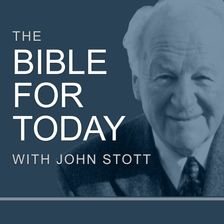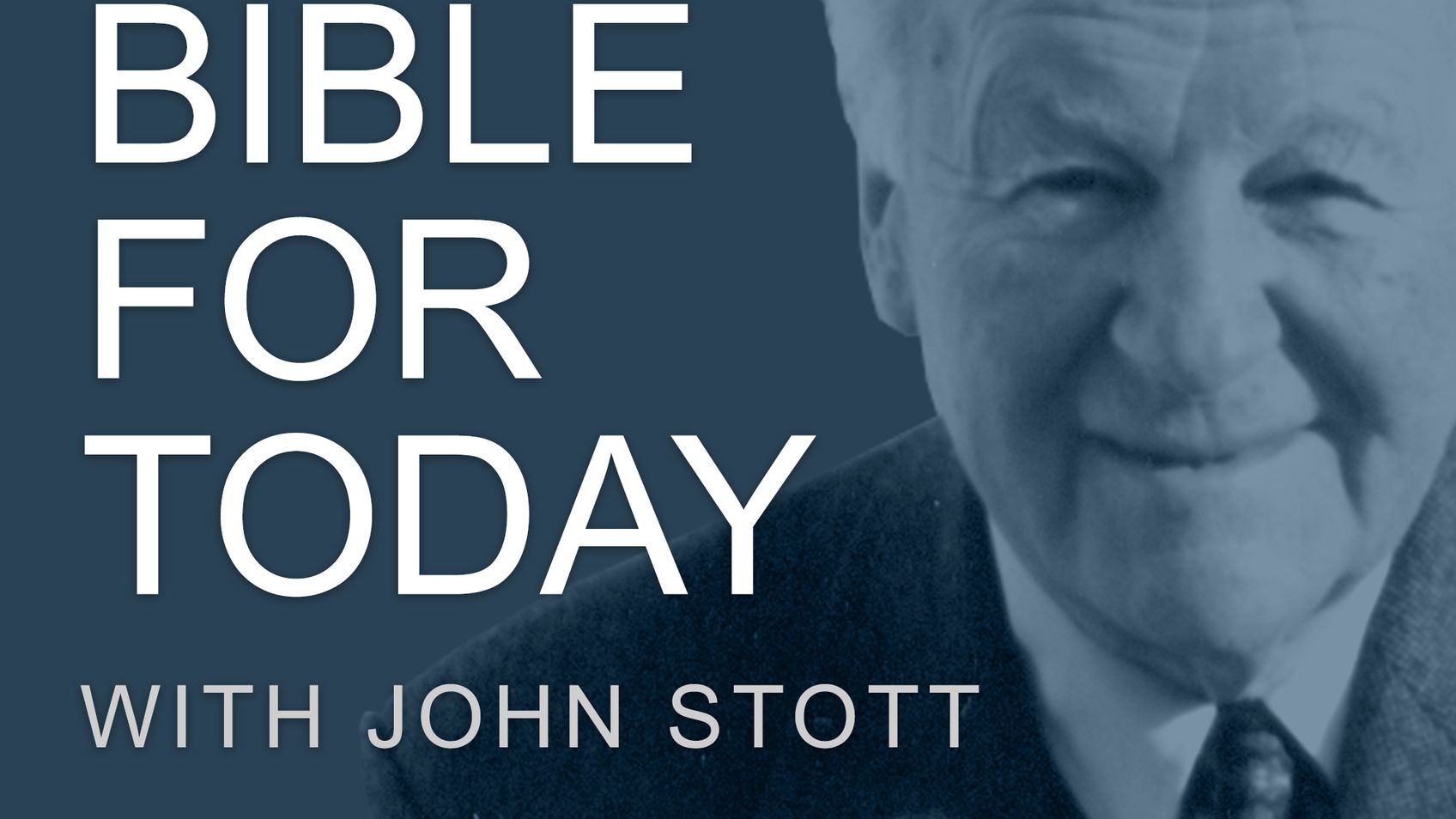The Mind - Part 2
August 22, 2021

The Bible for Today with John StottPremier
John Stott shows us how we need to use our minds in order to worship God. He also shows us that using our mind is necessary when we place our faith in Him for salvation and encourages us to repent of 'anti-intellectualism' in our Christian life.
More From The Bible for Today with John Stott

The Conscience - Part 1
The Bible for Today with John Stott
August 29, 2021
John Stott shows us that our conscience is what makes us different from the animal kingdom. He explains the place of our conscience in Christian conve

The Conscience - Part 2
The Bible for Today with John Stott
September 5, 2021
John Stott shows how as Christians we can put the cross of Christ between the devil and our conscience. But he also shows how it is possible to deaden

The Cause of His Death - Part 1
The Bible for Today with John Stott
September 12, 2021
John Stott explains why God cannot simply forgive our misdemeanours, as we would forgive one another, and why it was necessary for Jesus to die for us

The Mind - Part 1
The Bible for Today with John Stott
August 15, 2021
John Stott explains that the mind is the central citadel of the human personality that directs our human operations. He sets God's purpose for us to t

All By Myself - Part 2
The Bible for Today with John Stott
August 8, 2021
John Stott shows us that if marriage is seen as a blessing, singleness should not be seen as a curse. He warns against believing that singleness makes

All By Myself - Part 1
The Bible for Today with John Stott
August 1, 2021
John Stott examines the two statements of scripture: "It is not good for the man to be alone" Gen.1:18 and "It is good for a man not to marry" 1 Cor.7
More on OpenTheo

Are Demon Possessions and Exorcisms in the New Testament Literal?
#STRask
December 11, 2025
Questions about whether references to demon possessions and exorcisms in the New Testament are literal, how to talk to young children about ghosts, an

Is 1 Corinthians 12:3 a Black-and-White Tool for Discernment?
#STRask
October 27, 2025
Questions about whether the claim in 1 Corinthians that “no one can say ‘Jesus is Lord’ except in the Holy Spirit” is a black-and-white tool for disce

When I Can’t Stop Thinking About Something, Is That God Speaking?
#STRask
December 1, 2025
Questions about whether having a recurring thought is an indication God is speaking to you, what to say to someone who says they sinned because “God t

What Is the Role of the Holy Spirit in Our Lives if He Doesn’t Give Us Instructions?
#STRask
February 23, 2026
Questions about the role of the Holy Spirit in our lives, advice for someone who believes in God intellectually but struggles to understand how to hav

Why Should We Pray If God Already Knows What’s Going to Happen?
#STRask
January 29, 2026
Questions about why we should pray if God already knows what’s going to happen, how the effectiveness of prayer is measured, and whether or not things

Can You Recommend Good Books with More In-Depth Information and Ideas?
#STRask
January 22, 2026
Questions about good books on Christian apologetics, philosophy, and theology with more in-depth information and ideas, and resources to help an intel

How Can I Explain Modesty to My Daughter?
#STRask
November 27, 2025
Questions about how to explain modesty to a nine-year-old in a way that won’t cause shame about her body, and when and how to tell a child about a pre

What Are Some Good Ways to Start a Conversation About God with Family Members?
#STRask
October 30, 2025
Questions about how to start a conversation about God with non-Christian family members, how to keep from becoming emotional when discussing faith iss

Protestants and Catholics: What’s the Difference? With Chad Van Dixhoorn, Blair Smith, and Mark McDowell
Life and Books and Everything
November 26, 2025
How should Protestants think about the Catholic Mass? About the Eucharist? About the history and development of the papacy? In this panel discussion,

Can You Provide Verifiable, Non-Religious Evidence That a Supernatural Jesus Existed?
#STRask
November 10, 2025
Question about providing verifiable, non-religious evidence that a supernatural Jesus existed.
* I am an atheist and militantly anti-god-belief. Ho

What Do You Think About Churches Advertising on Social Media?
#STRask
January 19, 2026
Questions about whether there’s an issue with churches advertising on social media, whether it’s weird if we pray along with a YouTuber, and whether C

Christmas Cranks and Christmas Blessings with Justin Taylor and Collin Hansen
Life and Books and Everything
December 17, 2025
If you are looking for a podcast where three friends talk about whatever they want to talk about and ramble on about sports, books, and grievances, th

Does God Really Need a “Pound of Flesh” to Forgive Sins?
#STRask
January 12, 2026
Questions about how to answer the challenge that God doesn’t need a “pound of flesh” to forgive sins but can simply forgive, and whether the claim in

Kingdom Priorities: Following the Teachings of Jesus
Knight & Rose Show
February 14, 2026
Wintery Knight and Desert Rose discuss Jesus' teachings from the Gospels, emphasizing truth, evidence, self-denial, and forgiveness. They explore pass

How Would You Convince Someone That Evil Exists?
#STRask
November 17, 2025
Questions about how to convince someone that evil exists, whether Charlie Kirk’s murder was part of God’s plan, whether that would mean the murderer d
